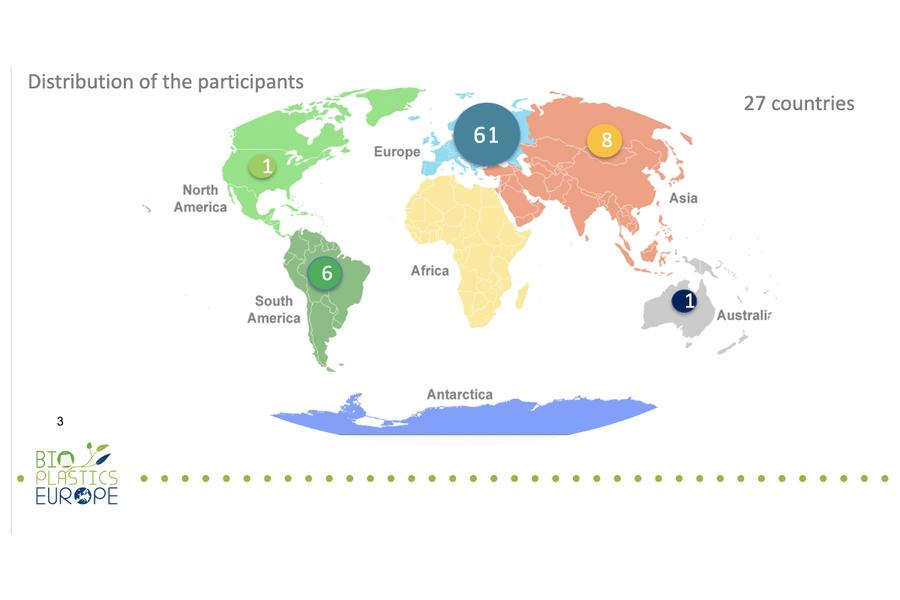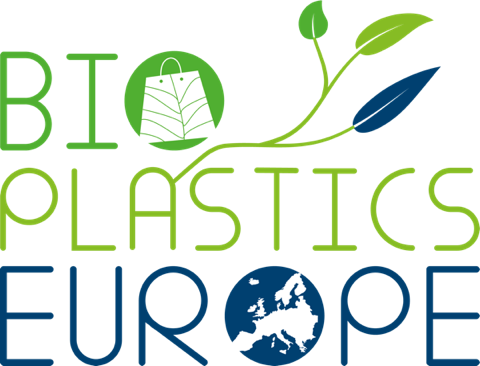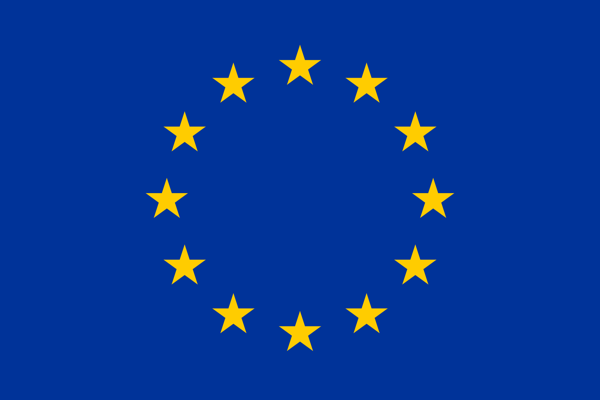3rd EBRN virtual meeting: recap
The third virtual meeting for the European Bio-plastics Research Network (EBRN) was held on Wednesday, 17th February 2021, with more than 70 participants in attendance from 27 countries. Participants answered a survey designed to gauge their usage of bio-plastics, and responses point to a positive outlook on bio-plastics. 37% of the event participants said to regularly buy or use products made of bio-plastics, and 54% reported doing it sometimes.

Opening the event, Dr. Jelena Barbir from HAW Hamburg introduced BIO-PLASTICS EUROPE’s ongoing work. Currently, the project is conducting laboratory and field experiments on five different bio-based plastic materials. More information on those activities will be presented to the public in the project newsletter which will be released in March 2021.
Athanassia Athanassiou, from the Italian Institute of Technology, gave the second presentation of the day, exploring the topic “Technological challenges to bio-based plastics production”. Her work focuses on the development of technologies to introduce municipal solid waste materials in the market as biocomposites alternative to plastics. She spoke about biomass solvent processing, water-based method for producing biocomposites from vegetable waste, melt extrusion, injection molding and scaling-up challenges.
The issue of “Market-related challenges to bio-based plastics production” was presented by Oliver
Buchholz, Communications Manager of European Bioplastics (EUBP). Market drivers and barriers for bio-plastic production were discussed. The problems of access to biomass, acceptance of bio-plastics in waste streams and the lack of policy incentives were highlighted.
Ari Rosling, R&D Director of Arctic Biomaterials OY (ABM), Finland, followed by speaking on “Future prospects for bio-based and bio-degradable plastics and their place in the market”. He pointed out to the growth potential in specific market segments, and that ABM is focused on developing (semi)-durable applications for bio-based biodegradable plastics instead of simple disposables in the markets of household and kitchen appliances, personal care items, industrial tools etc.
Laurent Bélard from NaturePlast, France, gave his talk “Adequacy between market expectations and possibilities”. He explained that much research and development work is necessary to modify the properties of bio-based materials according to the market needs.
The last speaker of the day was Patricia Ayma from VEnvirotech, Spain. Her presentation touched upon “Transforming organic waste into biodegradable bioplastics”. She presented the solutions and strategies offered by her company: treating waste in the generation site, engineering their own super producing bacteria for biodegrading materials, their own patented plastic extraction process and applications (packaging, biomedicine, 3D printing).
A lively discussion followed where presenters answered to questions and comments brought by the participants. The event lasted for a total of two hours and was a successful opportunity for exchanges on experiences and viewpoints from research and industry representatives. The slides which have been authorized by the presenters are available at our downloads page .


